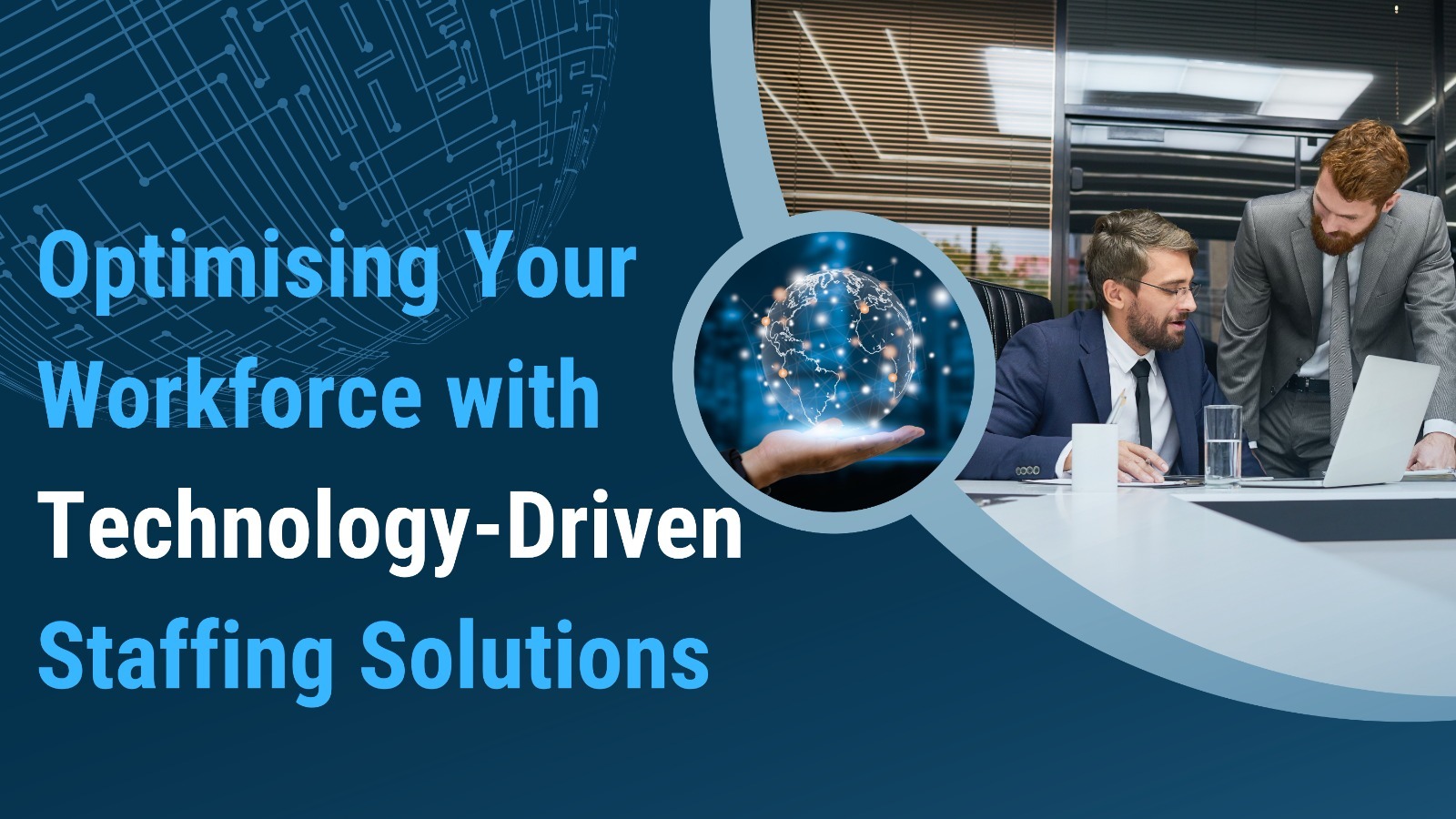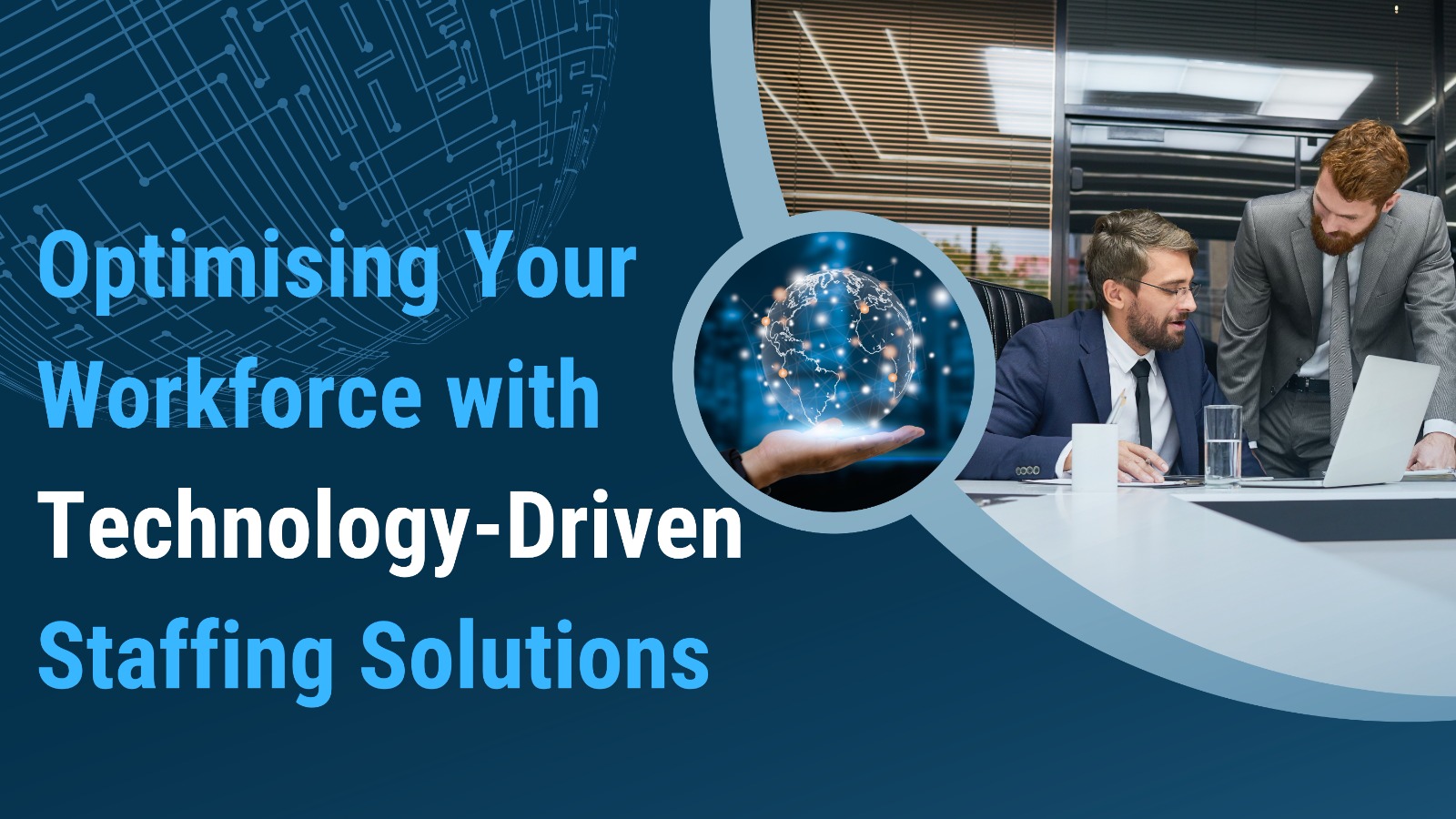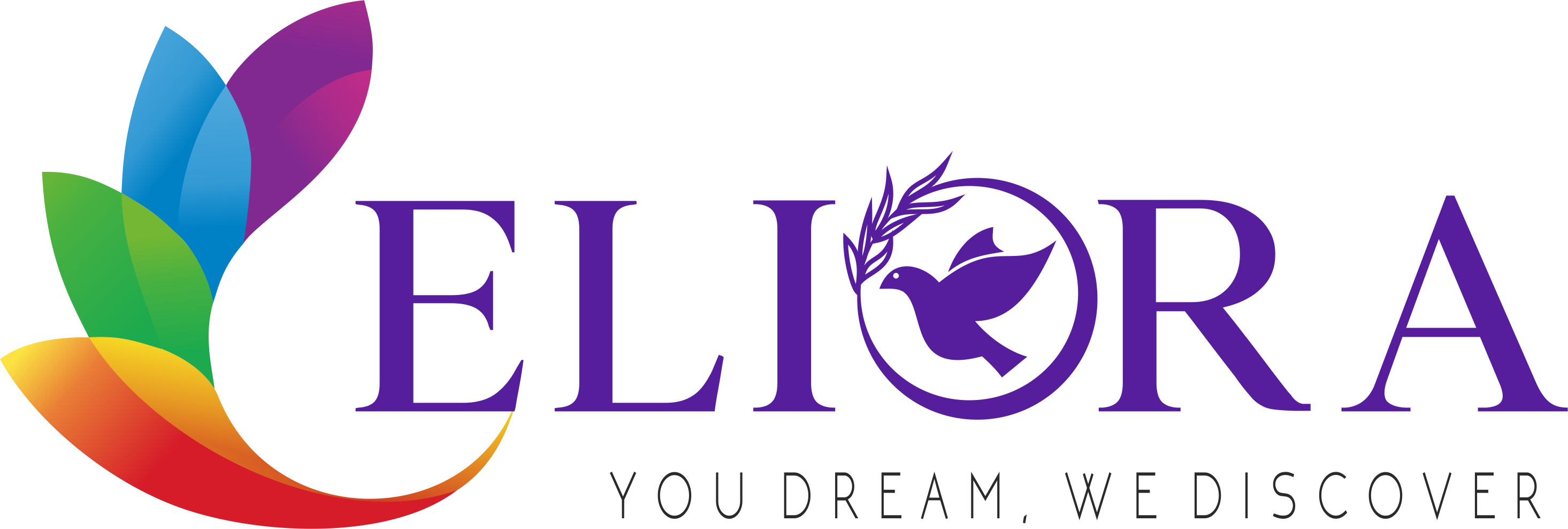Optimizing Your Workforce with Technology-Driven Staffing Solutions

In our most recent blog, we discuss how technology-driven staffing solutions are
redefining workforce optimization. Discover how cutting-edge technologies and
software are altering the way organizations recruit, manage, and retain workers,
resulting in more efficient and productive teams.
In a dynamic business landscape, technology-driven staffing solutions are the key to remaining competitive and efficient. These innovative approaches streamline recruitment, enhance onboarding, and revolutionize workforce management. By harnessing AI, data analytics, and automation, businesses can identify talent with precision, improve retention, and adapt to market demands swiftly.
In today's changing business environment, the demand for efficient staffing
solutions is ever-growing. Technology has emerged as the catalyst for
transformation in the HR and staffing sectors. This blog looks into the innovative
ways in which technology can be harnessed to streamline and enhance staffing
processes. From AI-driven recruitment tools to cloud-based HR management
systems, we'll explore the full spectrum of possibilities. Discover how
automation, data analytics, and digital platforms can not only save time and
resources but also provide tailored solutions to meet your organization's staffing
demands. Join us on this journey to revolutionize your staffing strategies and
stay competitive in the rapidly evolving job market.
Streamlining Recruitment
Traditionally, recruitment has been a time-consuming and resource-intensive
process. However, technology has revolutionized this aspect of workforce
optimization. AI-powered algorithms can sift through numerous resumes,
identifying the most suitable candidates in a matter of seconds. This not only
saves time but also ensures that the best talent is brought on board.
Efficient Onboarding
Once the right candidates are identified, technology continues to play a crucial
role in their onboarding. E-learning platforms, digital training materials, and
automated systems can make the process faster and more efficient, enabling new
employees to contribute to the organization's success more quickly.
Workforce Scheduling and Management
Technology-driven staffing solutions also excel in workforce scheduling and
management. Advanced software can create schedules that match employee
availability, skills, and preferences, optimizing work allocation. This minimizes
overstaffing, reduces overtime costs, and ensures that employees are more
satisfied with their work arrangements.
Performance Monitoring and Feedback
Evaluating employee performance is the most essential aspect of workforce
optimization. Technology can provide real-time data on employee productivity,
allowing for timely feedback and performance improvement. It can also help
facilitate regular performance reviews, keeping employees motivated and
engaged.
Remote Work Enablement
In recent years, remote work has become more prevalent. Technology-driven
staffing solutions have enabled companies to seamlessly transition to remote
work arrangements. Through video conferencing, cloud collaboration tools, and
project management software, employees can effectively work from anywhere,
maintaining productivity and flexibility.
Data-Driven Decision-Making
Data is the lifeblood of workforce optimization. Technology provides access to an
abundance of data that can be harnessed for decision-making. Workforce
Analytics tools can help in identifying trends, predicting employee turnover, and
optimizing resource allocation. This data-driven approach ensures that decisions
are grounded in evidence and more likely to yield positive results.
Employee Self-Service
Numerous staffing solutions powered by technology feature self-service portals
designed for employees. These digital platforms empower workers to take control
of their HR-related responsibilities, such as updating personal details, requesting
time off, and accessing their payment records. This shift towards self-service not
only lightens the workload of HR teams but also allows them to concentrate on
more strategic and value-added functions.
Scalability and Flexibility
The business environment is dynamic, and organizations must be able to adapt
quickly. Technology-driven staffing solutions provide the scalability and flexibility
needed to grow or downsize the workforce as necessary. Whether it's seasonal
fluctuations or expansion plans, technology can help businesses adjust without a
hitch.
Cost Savings
Finally, one of the most significant advantages of technology-driven staffing
solutions is cost savings. By optimizing workforce management, reducing
administrative overhead, and improving efficiency, businesses can significantly
cut their operational expenses, which can directly impact the bottom line.
Enhancing your workforce through technology-driven staffing solutions is
undeniably a strategic imperative in the contemporary business landscape. As
organizations seek to remain competitive, agile, and more efficient, the adoption
of these innovative approaches has become increasingly vital in this dynamic
world.
These solutions facilitate not only streamlined recruitment and onboarding
processes but also more dynamic and responsive workforce management. By
harnessing data analytics, artificial intelligence, and automation, businesses can
identify talent with precision, match them to roles seamlessly, and, ultimately,
improve employee retention. This, in turn, boosts overall productivity and
decreases the operational costs associated with high employee turnover.
Additionally, technology-driven staffing solutions empower businesses to better
adapt to evolving market demands. Whether it's the ebb and flow of seasonal
workloads or responding to unpredictable market shifts, technology allows
companies to scale their workforce quickly and efficiently. This adaptability can
be a game-changer in industries where demand fluctuates.
Additionally, removing HR from daily routine administrative tasks enables the HR
team to mainly carry out more strategic functions like retention, engagement, and
employee development. This contributes to a happier and more motivated
workforce, which is often reflected in improved customer service and higher
customer satisfaction rates. As technology advances, companies that are moving
up with these technologies are going to have a significant edge in this
ever-evolving business landscape.

